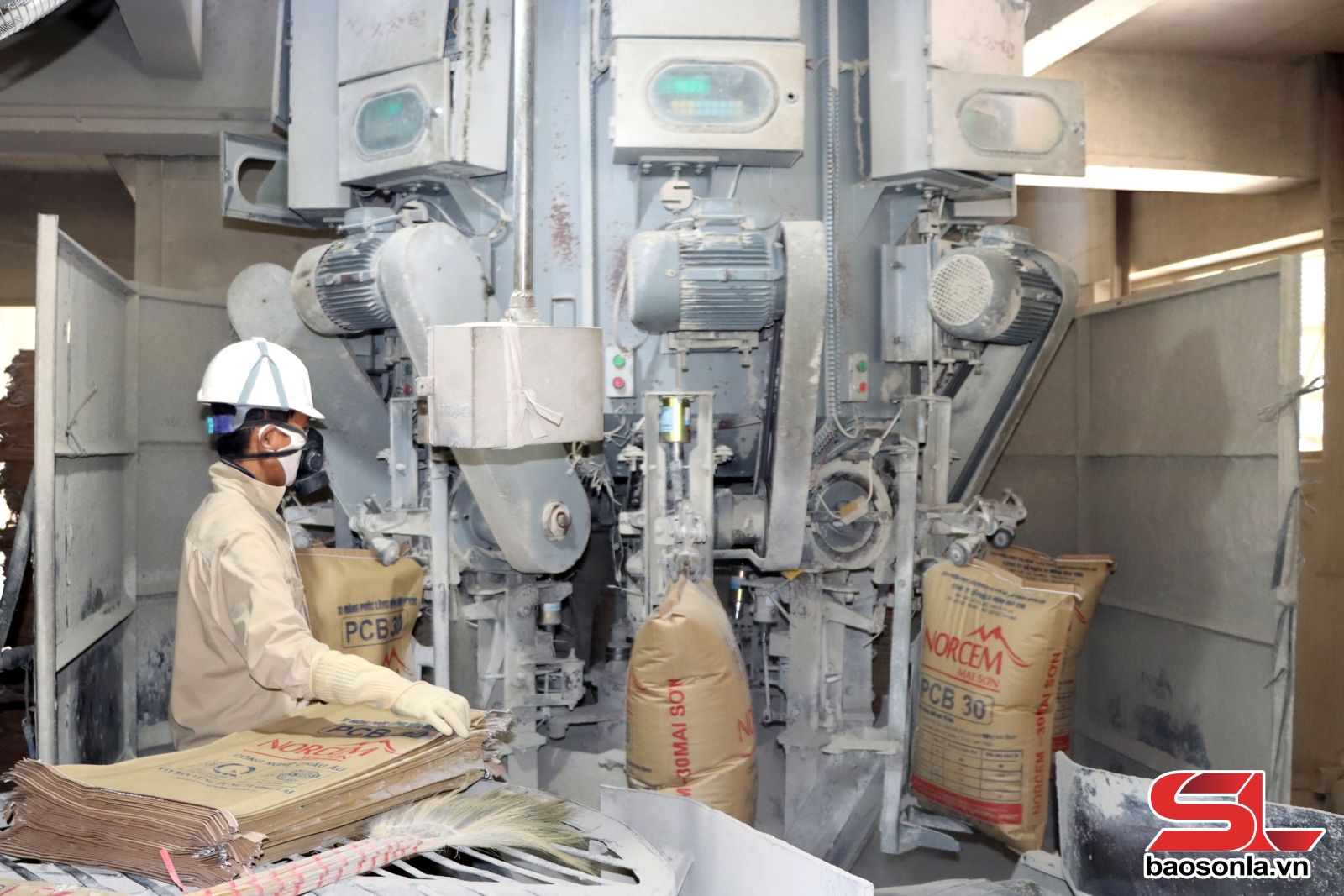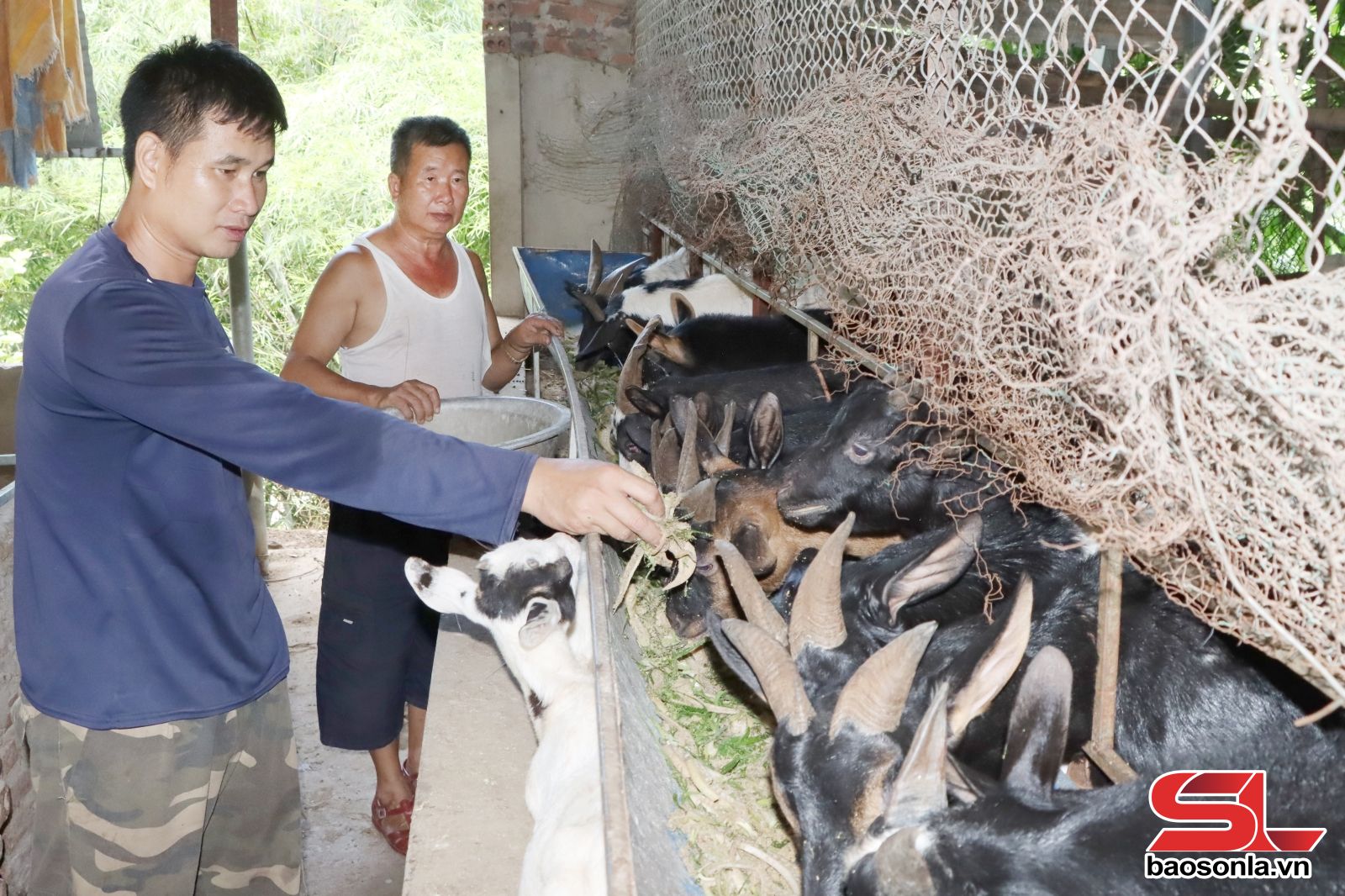

Due to its wide and sprawling terrain from areas along the Da River to highland villages, transportation is difficult, economic conditions are limited, and educational levels vary. Most residents are familiar only with small-scale agricultural production and lack vocational skills and stable employment. To address this, every year the People’s Committee of Ta Hoc commune regularly coordinates with the provincial Employment Service Centre and specialised agencies to organise conferences providing information on both domestic and overseas labour markets. They also create favourable conditions for rural laborers to participate in vocational training that suits their educational background, economic capacity, and personal needs. These efforts are integrated with national target programmes to support economic model development, create jobs, and increase workers’ incomes.
According to Ngo Minh Tuan, Chairman of the communal People’s Committee, the commune has mobilised resources to promote socio-economic development. It has encouraged residents to apply scientific and technical advances, restructure agriculture, introduce new crops and livestock, and promote the development of cooperatives associated with building signature products and OCOP products. The commune has supported households in forming six effective cooperatives, contributing to job creation and income growth for local workers.
Additionally, Ta Hoc has proactively established partnerships with local companies such as Son La Sugar Company, Mai Son Cement JSC, Song Lam Tay Bac Fertilizer JSC, and Dong Giao Foodstuff Export JSC to recruit rural workers, offering them stable incomes. To date, the commune has 6,205 workers employed at enterprises, production facilities, businesses, cooperatives, and seasonal jobs within the province. A total of 1,971 workers have found employment outside the province or through labour export programmes in Japan, the Republic of Korea, and Taiwan, earning from 10 to 30 million VND (379-1,137 USD) per month.
At Mai Son Cement JSC, located in Ta Hoc commune, there are currently 243 workers, more than 50% of whom are local residents, with an average monthly income of 8.7 million VND. Lo Van Thanh from Bo Dui hamlet shared that in 2012, after graduating from the IT Department of Son La College, he was hired as a technical machine operator at the company, earning 8-9 million VND per month. He also receives full benefits including social insurance, health insurance, unemployment insurance, bonuses, and labour protection.

Residents of Mong hamlet, Ta Hoc commune, develop goat-raising models that provide stable income.
The commune has also paid close attention to agricultural training and technical guidance. Since 2024, it has coordinated with specialised agencies to organise 12 vocational training courses for more than 600 rural workers on safe vegetable cultivation; fruit tree planting and care; coffee cultivation, harvesting and processing; and livestock and poultry husbandry and disease prevention. These programmes are implemented under the national target programmes on new-style rural development and on socio-economic development in ethnic minority and mountainous areas. The commune has also coordinated with the Vietnam Bank for Social Policies (VBSP)’s Mai Son branch to implement job creation loan programmes, enabling 223 workers to borrow over 10.5 billion VND in total to develop household economy and secure employment.
Effective job creation and vocational training for rural workers in Ta Hoc have contributed to reducing unemployment, ensuring security, safety, and social order. In 2025, the commune’s per capita income reaches nearly 35 million VND per year, and the poverty rate has decreased from 44.9% in 2021 to 27.51% in 2025 (a reduction of 3.49% per year on average).
Ta Hoc commune continues to focus on job creation tied to vocational training, helping residents secure stable jobs and improve their quality of life, aiming for rapid and sustainable poverty reduction. By 2030, the commune strives for 65% of its labour force to receive vocational training, average per capita income to reach 40 million VND per year, and for completely eliminating poverty based on multidimensional poverty standards.






















You have 500/500 characters left
Please enter 5 or more characters!!!